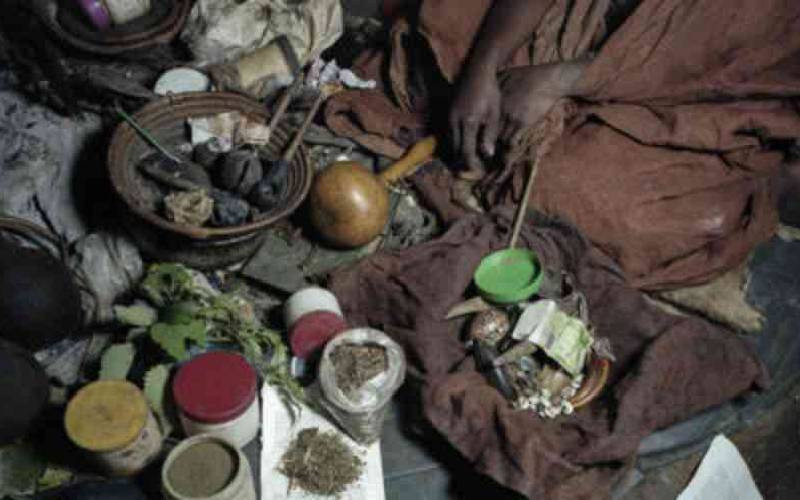By Billow Kerrow
Are we staring at a disastrous economic meltdown in our country? Contrary to what the Deputy Prime Minister and Finance Minister said this week, the economy is anything but healthy. I am baffled when he claims that the fundamentals, macro-economic indicators, are sound. Nothing could be further from the truth.
Instability in macro-economic indicators is obvious. The interest rates are headed to the roof. Soon, they will be in the region of 25-30 per cent with most banks already raising base-lending rates to nearly 20 per cent.
Inflation is just shy of 20 per cent, well above the five per cent level projected in his most recent Budget. The worst of all is the exchange rate; the shilling has lost nearly 30 per cent of its value in just under a year, and still on a free fall. Stock prices are tumbling down at the Nairobi Stock Exchange.
In his June 8 Budget Speech, the minister stated that he will "ensure low and stable inflation and interest rates as well as competitive exchange rates" to achieve the targeted GDP growth rate of 5.3 per cent.
His only caution was that high fuel and food prices would impact on the growth. He downplayed the exchange rate volatility as the shilling had lost 10 per cent of its value by that date, and simply opined that expected rains would drive down the inflation and CBK would use its monetary policy to manage the interest rate.
Earlier in the week, CBK Governor blamed the Treasury for the plight of the shilling. He alluded to failure by the Treasury to manage its fiscal policies such huge budget deficit and high Government spending that impact on inflation and interest rates, which underpin the worsening exchange rates.
It is no secret that the Treasury and CBK have not been reading from the same script because of differences between the CEOs of the two institutions. So, when the minister and the governor appeared before the nation to make a raft of new proposals, it was nothing more than an attempt to display unity, regrettably, too little too late.
Yet again, the minister acknowledged the rapid collapse of the shilling was the work of speculators, not just demand driven. That statement reiterated the governor’s earlier announcements that commercial banks were hoarding the dollars and some were engaged in unscrupulous deals. In other words, there are economic saboteurs!
If there are saboteurs known to the Government, why is there no action taken against them to save the nation? Are there sacred cows? Is it the return of ‘political banks’?
The minister invited Kenya Bankers Association CEO along, ostensibly to show a united approach to issue. But his direction to the CBK to work with the bankers association is quite telling. Did the cosy relationship between the governor and some banks alienate others, which instigated the run on dollars?
To prove he is in charge, the minister issued a number of directives to CBK and promised tough banking regulations.
That’s surprising as it clearly undermines CBK’s independence and creates further uncertainty that the Government does not agree with its measures.
Only last week, its directive to sell dollars directly to importers was overruled by the Government. A perceived weak regulator would only mean the situation will get worse. Clearly, we have a situation here!
Both the governor and the minister have been proponents of a weaker shilling for the past couple of years. Just how weaker did they want it to be? Shillings 100 to the dollar? Is that why they have been slow to act all these while?
Stay informed. Subscribe to our newsletter
In this circus of failed fiscal policies, political expediency to protect economic saboteurs and institutional grandstanding, it is the Kenyans who are the victims. We have lost precious value too as our livelihoods collapse amid rising cost of living.
With election year around the corner, the uncertainty in the money sector is bound to make it only worse.
The writer is a former MP for Mandera Central and political economist
 The Standard Group Plc is a
multi-media organization with investments in media platforms spanning newspaper
print operations, television, radio broadcasting, digital and online services. The
Standard Group is recognized as a leading multi-media house in Kenya with a key
influence in matters of national and international interest.
The Standard Group Plc is a
multi-media organization with investments in media platforms spanning newspaper
print operations, television, radio broadcasting, digital and online services. The
Standard Group is recognized as a leading multi-media house in Kenya with a key
influence in matters of national and international interest.
 The Standard Group Plc is a
multi-media organization with investments in media platforms spanning newspaper
print operations, television, radio broadcasting, digital and online services. The
Standard Group is recognized as a leading multi-media house in Kenya with a key
influence in matters of national and international interest.
The Standard Group Plc is a
multi-media organization with investments in media platforms spanning newspaper
print operations, television, radio broadcasting, digital and online services. The
Standard Group is recognized as a leading multi-media house in Kenya with a key
influence in matters of national and international interest.






